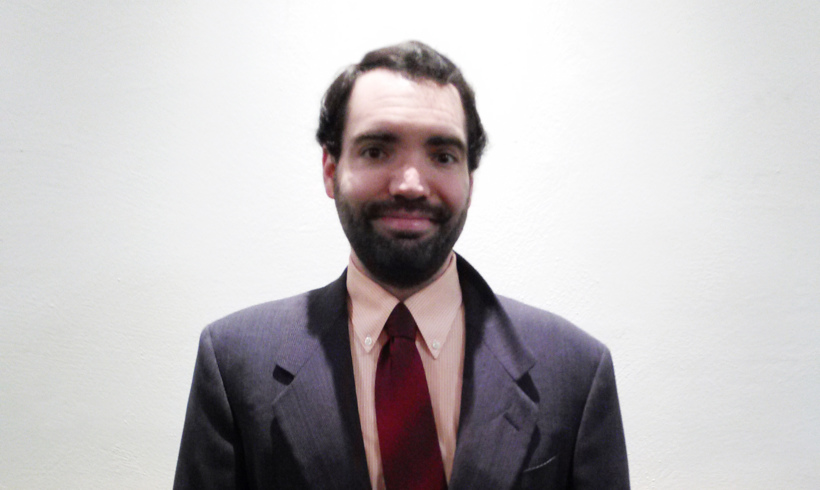News
Fellow Q&A: WW Teaching Fellow Jacob Good

WW Teaching Fellows come from many different backgrounds but are united by a single goal: to teach science, technology, engineering, and math (the STEM fields) in some of the nation’s highest-need schools. But what makes these Fellows tick? What inspired them to pursue a career in the classroom? In this WW Perspectives series, we hear from WW Teaching Fellows about what drew them to the program.
Jacob Good was a 2016 WW New Jersey Teaching Fellow and is now a chemistry and environmental science teacher at Thomas A. Edison Career and Technical Academy in Elizabeth, New Jersey.
WW Perspectives: What drew you to teaching?
Jacob Good: I initially started teaching as a teaching assistant while in the graduate chemistry program at Carnegie Mellon University. Although I produced quality research that ended up getting published, I felt like teaching allowed me to make a much more immediate and impactful contribution to people’s lives.
WW Perspectives: Why did you choose the WW Teaching Fellowship?
Jacob Good: Very simply, the Woodrow Wilson Teaching Fellowship program gave me the best tools to begin teaching right away. It provided me with a grant as well as master’s-level preparatory coursework and a rigorous student teaching program.
WW Perspectives: What do you think was the best preparation that you’ve received for the realities of the classroom?
Jacob Good: “Teaching is a marathon, not a sprint.” The rigorous yearlong clinical experience required constant effort—being able to perform under the guidance of a teacher was most helpful.
WW Perspectives: Can you recall any moments in the classroom when you knew that you’re making a difference as a teacher?
Jacob Good: I had a somewhat difficult student who was not fond of the work and would occasionally argue about it. However, what was unique about him is that every single time he would be difficult with me, he would take the initiative to come back and apologize to me. He would then politely ask for help with the work. He explained to me that he did not have much time for academics due to family matters. As a teacher, I could not compromise on the integrity of the work, but this added a layer of respect. He knew that I was proud of him for the work he was doing for his family, while still expecting the same quality of academic work from him. He continued to engage with me and despite occasional minor disputes, he would always come back to apologize if needed and express willingness to keep working.
WW Perspectives: What matters most to you about the students you work with?
Jacob Good: Personal integrity. I write motivational quotes at the top of my tests and, to the best of my ability, try to nurture strong moral and respectable character. Knowledge is useless and in fact dangerous without character, so it is crucial to me that we as teachers nurture not just educated students, but good people.
WW Perspectives: What has been the most rewarding part of the program for you?
Jacob Good: My school has a massive turnover rate for science teachers. I am only in my second year of teaching and I am the senior chemistry teacher. We have one tenured science teacher in the whole department. I serve as an unofficial peer coach and mentor to the new science teachers, of which we have at least three—one of them also a WW Teaching Fellow in her first year of teaching. I go and observe them, encourage them, direct them, model good classroom skills for them, and all the things one would expect of a supervisor. I feel most rewarded when I can make a difference in people’s lives.
WW Perspectives: What would you say to someone who’s considering becoming a WW Teaching Fellow?
Jacob Good: Understand that much of the work you do as a teacher, especially in high-need districts, goes beyond teaching. Much of your in-class time will be spent on classroom management and much of your time out-of-class will be spent documenting. This is the reality that teachers face. Fortunately, the WWTF program provides you with a very involved yearlong clinical experience in a high-need school and this gives you a very practical approach as to how to navigate these grey areas in ways that mere coursework does not.

